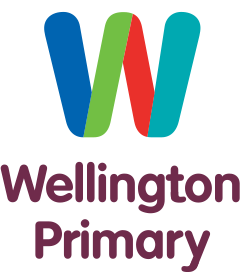PSHE
At Wellington Primary School we believe PSHE to be an important cross curricular subject which prepares children for life. It is visible and valued as an essential part of teaching and learning, both directly through lessons and indirectly through the fair and consistent encouragement of good manners and consideration for others at all times.
Our intention is that our children have the right start, so that when they leave Wellington Primary School, they do so with the knowledge, understanding and emotional awareness to be able to play an active, positive and successful role in a diverse, multi-cultural society.
By working with pupils to identify their individual and unique needs, strengths and talents, we will enable our children to have high aspirations, independence, confidence, and a realisation that they will be successful if they are resilient and persevere to achieve their goals.
In an ever-changing world, it is important that our children are aware, at an appropriate level, of their rights and the different factors which affect their world, enabling them to stay safe and deal with any challenges, ensuring that they have good mental health and a positive sense of well-being.
To ensure a depth and accuracy of learning which builds upon prior learning as pupils progress through the school, Wellington Primary School has implemented Jigsaw 3-11, a fully planned, sequenced, spiral PSHE scheme of work. Statutory relationships and health curriculum is taught within the wider Jigsaw PSHE curriculum. As a school, we follow a set theme each half term, which is introduced in a whole school assembly. There are 6 lessons per theme and every lesson has two Learning Intentions, one specific to PSHE knowledge and the other designed to develop emotional literacy and social skills.
Lessons are underpinned by the Jigsaw behaviour charter, which reinforces respect for each other – taking turns, being kind and positive and respecting confidentiality.
The 6 Jigsaw topics are:
- Being Me in My World
- Celebrating Difference (including Anti-Bullying)
- Dreams and Goals
- Healthy Me
- Relationships
- Changing Me
The long term curriculum overview dictates when each topic is covered and clearly shows how new learning builds on previous learning.
Retrieval activities (such as the use of thinking frames at the start of a new topic) are used to revisit previous learning. This supports the development of interconnecting schemas in the long term memory and develops long lasting memory.
Although PSHE is taught as discrete, weekly lessons, we believe that PSHE plays a vital part of a child’s development and therefore PSHE is integrated throughout the curriculum, it is displayed across the school and it is evident throughout the school day.
Our school is situated in a thriving, yet busy multicultural area of West London. The curriculum is therefore enhanced through external visitors and enrichment activities with an emphasis on respecting others and being safe. We participate in the Think Equal Project for the EYFS, Black History Month, Road Safety Week, Walking to School Week, PANTs week and the Speak Out, Stay Safe Programme with the NSPCC.
Relationships and Sex Education
We carry out the statutory RSE teaching in our Personal, Social and Health Education (PSHE) curriculum using the Jigsaw Scheme of Work. Before any changes are made to the RSE policy or the RSE curriculum, we will speak to parents in our RSE Working Party to make sure what our children learn is age appropriate. Please ask the class teacher or Mrs Murphy (the PSHE Coordinator) if you have any further questions. Do click on the links for more information on what is currently taught and when.

Rights Respecting School
We are working towards the Rights Respecting Schools Award. This means in our school the headteacher, school leaders and all school staff are committed to becoming a right-respecting school. Children and young people work with adults to decide how to develop a whole-school rights-respecting approach.
Becoming a rights respecting school means that we aim to be a school where children’s rights are at the heart of our ethos and culture, to improve well-being and to develop every child’s talents and abilities to their full potential.
Put simply this means that we believe that “All children have the right to a good quality education (Article 28) and that this education should develop their talents and abilities and enable all children to reach their full potential (Article 29).”
Our pupils will learn about their rights by putting them into practice every day. A Rights Respecting School models rights, respect in all its relationships and we will promote these Rights in all that we do.
If you would like to find out more about the Convention on the Rights of the Child you can visit unicef.org.uk/crc.



